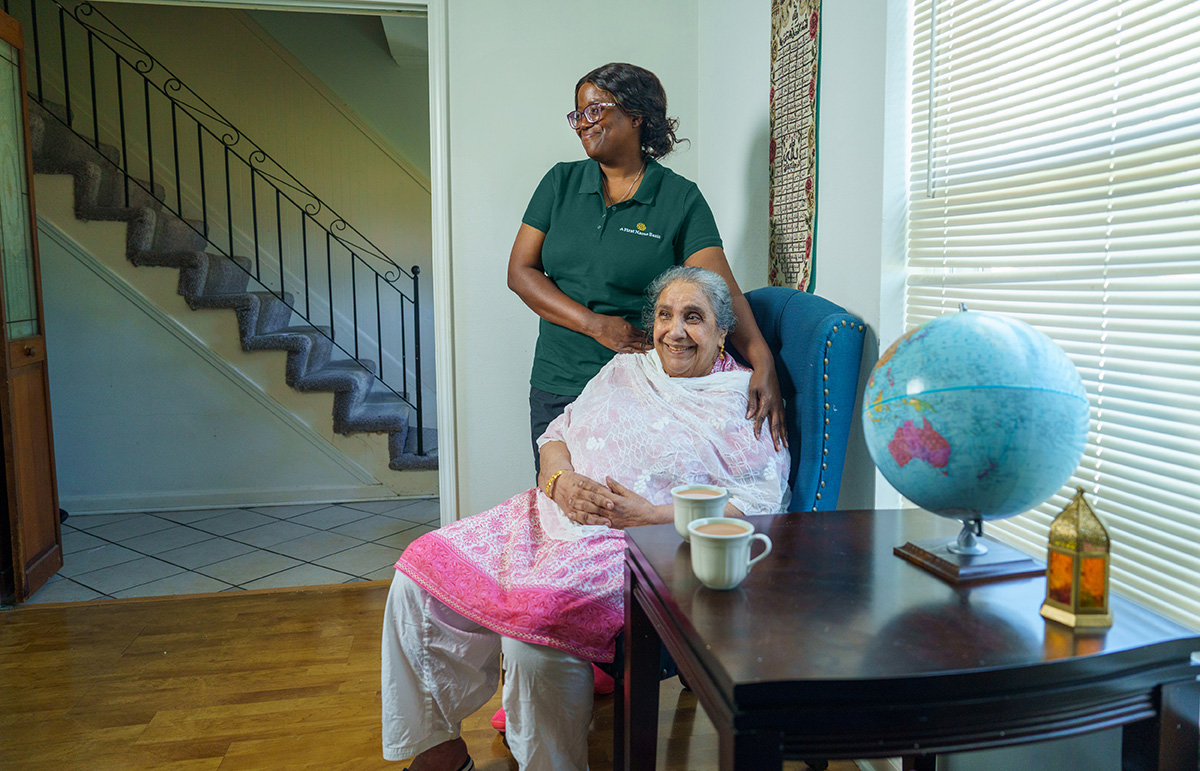By David Ramos, RN
In-home caregiving is challenging yet profoundly rewarding. As a caregiver, you play a crucial role in the lives of those who need assistance due to age, illness, or disability. Whether you are a professional caregiver or a family member providing care, possessing the right skills is essential to ensure the well-being and comfort of your loved one. Here are some of the most important skills every caregiver should have:
1. Compassion and Empathy
At the heart of caregiving lies compassion and empathy. Understanding and sharing the feelings of those you care for fosters a strong bond and helps you provide the emotional support they need. This skill allows you to connect on a deeper level, making your care more effective and meaningful.
2. Patience
Caring for someone can be demanding and time-consuming. Patience is vital, especially when dealing with individuals who may have cognitive impairments, mobility issues, or other challenges that require a slower pace. Patience ensures that you can handle the ups and downs of caregiving without becoming frustrated.
3. Communication Skills
Effective communication is key in caregiving. Being able to clearly convey instructions, listen to concerns, and understand non-verbal cues can significantly improve the quality of care. This skill also extends to communicating with healthcare professionals and family members to ensure that everyone is on the same page regarding the care plan.
4. Physical Strength and Stamina
Caregiving often involves physical tasks such as lifting, transferring, and assisting with mobility. Having the necessary physical strength and stamina can prevent injuries to both you and the person you are caring for. Proper techniques and assistive devices can also play a role in safely managing these tasks.
5. Time Management
Balancing various caregiving tasks, from medication management to meal preparation, requires excellent time management skills. Prioritizing duties and creating a structured routine helps ensure that all needs are met efficiently, reducing stress for both the caregiver and the care recipient.
6. Problem-Solving Skills
Unexpected situations can arise at any moment in caregiving. Being able to think on your feet and find effective solutions to problems is crucial. This might involve quickly addressing medical issues, handling behavioral changes, or managing logistical challenges.
7. Medical Knowledge
While you don’t need to be a healthcare professional, having a basic understanding of medical conditions, medications, and emergency procedures is beneficial. This knowledge allows you to respond appropriately to health issues and communicate effectively with medical personnel.
8. Organizational Skills
Keeping track of appointments, medications, and daily care routines requires strong organizational skills. Using tools like calendars, apps, and checklists can help you stay organized and ensure that nothing is overlooked.
9. Adaptability
Caregiving is rarely predictable. Being adaptable allows you to adjust to new situations and changing needs. This flexibility ensures that you can provide consistent care even when circumstances shift.
10. Self-Care
Lastly, caregivers must prioritize their own well-being. Burnout is a common issue in caregiving, so it’s important to practice self-care, seek support, and take breaks when needed. A healthy caregiver is better equipped to provide quality care.
Caregiving is a multifaceted role that demands a diverse set of skills. By cultivating these essential skills, caregivers can provide compassionate, effective, and comprehensive care, ensuring the best possible quality of life for those they assist.
A First Name Basis
Are you interested in caregiving as a career path? Apply to work as a caregiver for A First Name Basis, where we know that supporting caregivers leads to better care. Our caregivers are employees who enjoy benefits such as health insurance, dental insurance, and more. We also equip our caregivers for success, with industry-leading training and support.
Sources:
- National Council of Certified Dementia Practitioners: 8 Essential Caregiver Skills You Need To Succeed. https://www.nccdp.org/8-essential-caregiver-skills-you-need-to-succeed/
